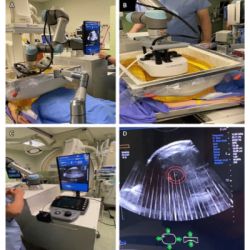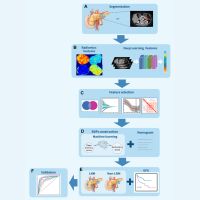The 2023 Alexander R. Margulis Award for the best original scientific article published in Radiology has been awarded to researchers of the article “Pancreatic Cancer Detection on CT Scans with Deep Learning: A Nationwide Population-based Study”.
The team created an AI tool and trained it by analysing hundreds of contrast-enhanced CT studies from patients diagnosed with pancreatic cancer and comparing them to scans from individuals with a normal pancreas.
Radiology Editor, Linda Moy, MD, said “The study demonstrates how a deep learning–based tool can result in accurate detection of pancreatic cancer on CT scans, especially for tumors smaller than 2 cm”.
The earlier pancreatic cancer is detected, the faster intervention can start, increasing the chances of survival.
Although CT is the most widely used exam for pancreatic cancer detection, it misses around 40% of tumours smaller than 2cm.
In a test set of 1,473 real-world CT studies, the AI tool achieved 90% sensitivity and 93% specificity. For the detection of pancreatic cancers measuring less than 2cm, the sensitivity was 75%. The tool's sensitivity for pancreatic cancer was comparable to that of radiologists, irrespective of tumor size and stage.
By assisting radiologists and clinicians in identifying suspicious lesions on CT scans, it facilitates swift and accurate diagnoses, which is paramount for enhancing patient outcomes.
As Dr. Chen, from the Department of Medical Imaging at National Taiwan University Hospital, said, “this workflow offers a valuable advantage by providing a reliable second opinion, enhancing diagnostic confidence among medical professionals, and ultimately benefiting patient care”.
The method incorporates automated pre-processing segmentation, or identification and outlining of the pancreas on whole-body CT scans. The automation of this process signifies a significant advancement in AI evaluation of pancreas imaging.
This approach streamlines the process, saving valuable time for physicians. Furthermore, as Dr. Chen summarises, “it also ensures that the classification model is directed toward the critical area, eliminating extraneous information”.
Source: RSNA News
Image Credit: iStock



























